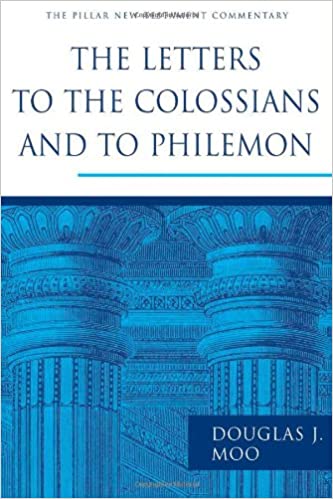A Brief Book Notice from Books At a Glance
Fred G. Zaspel
I’ve been spending a good bit of time in Colossians recently, preparing to teach through the book soon, and from the beginning of my study three commentaries have stood out above the others as most helpful guides to understanding the biblical text: Greg Beale (BECNT), Doug Moo (PNTC), and Peter O’Brien (WBC).
 Each of these excellent commentaries has its own particular style and strength, but all are indispensable. O’Brien’s is a commentary on the Greek text, and Beale consistently highlights syntactical considerations, but all three are rigorously exegetical. Beale never fails to tie the passage at hand to larger Biblical-Theological themes (this will be no surprise to those of you who are familiar with Beale), and Moo is careful to do the same. And of course with O’Brien you have to endure the WBC commentary format. If I had to choose just one (and I’m glad I don’t), without question it would be Moo. He is the most thorough, his interpretive and exegetical judgments are always patiently weighed and more suggestive for preaching, and in the end he provides a precise understanding of the text. And, to boot, I align more closely with him on particular theological issues that arise (e.g., Col. 2:12). In brief, I find him to be the most helpful overall for exegetically-grounded, theological exposition. But I would not want to be without Beale and O’Brien. I’ve kept an eye on other commentaries also, of course, and helpful though they may be in their own right I increasingly I have felt that with these three I scarcely need much else. These all are careful, on point always toward a precise understanding of the text, and consistently provide an exposition that keeps both forest and trees in view.
Each of these excellent commentaries has its own particular style and strength, but all are indispensable. O’Brien’s is a commentary on the Greek text, and Beale consistently highlights syntactical considerations, but all three are rigorously exegetical. Beale never fails to tie the passage at hand to larger Biblical-Theological themes (this will be no surprise to those of you who are familiar with Beale), and Moo is careful to do the same. And of course with O’Brien you have to endure the WBC commentary format. If I had to choose just one (and I’m glad I don’t), without question it would be Moo. He is the most thorough, his interpretive and exegetical judgments are always patiently weighed and more suggestive for preaching, and in the end he provides a precise understanding of the text. And, to boot, I align more closely with him on particular theological issues that arise (e.g., Col. 2:12). In brief, I find him to be the most helpful overall for exegetically-grounded, theological exposition. But I would not want to be without Beale and O’Brien. I’ve kept an eye on other commentaries also, of course, and helpful though they may be in their own right I increasingly I have felt that with these three I scarcely need much else. These all are careful, on point always toward a precise understanding of the text, and consistently provide an exposition that keeps both forest and trees in view.
I will mention one other, however – David Garland’s NIVAC commentary is consistently
 useful also. In keeping with the goals of the NIVAC his commentary is oriented more to the preacher and is not as explicitly exegetical, but his comments are nonetheless thoroughly informed and theologically aware. His brief synopsis-summaries of a passage (“Original Meaning”) enlighten each passage with remarkable clarity, and his application sections are insightful and delightfully suggestive. The NIVAC is a different genre of commentary from the others mentioned here, but Garland is a genuinely rewarding read and is easily accessible to any reader.
useful also. In keeping with the goals of the NIVAC his commentary is oriented more to the preacher and is not as explicitly exegetical, but his comments are nonetheless thoroughly informed and theologically aware. His brief synopsis-summaries of a passage (“Original Meaning”) enlighten each passage with remarkable clarity, and his application sections are insightful and delightfully suggestive. The NIVAC is a different genre of commentary from the others mentioned here, but Garland is a genuinely rewarding read and is easily accessible to any reader.
Okay, I’ll mention one more category. For raw exegetical analysis, Murray Harris is hard to beat, although Con Campbell is excellent on this score also.
We are very blessed in this day to have such an abundance of wonderfully gifted teachers to guide us to a closer understanding of God’s Word. A double blessing for those of us who preach and teach.
